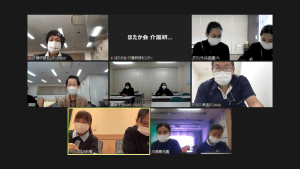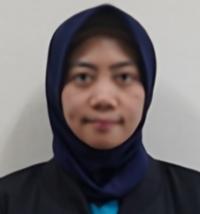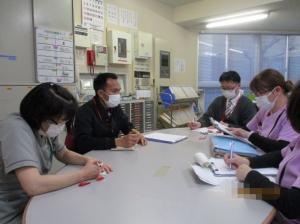本文
Social Welfare Corporation Hotakakai
Our solid lifestyle support and consultation system will help you start your life and work in Japan with peace of mind!
Corporate information
Business Category:Operation of social welfare and long-term care insurance facilities/Etc.
Location:Maebashi City(headqaurters)
Number of Employees:444, out of which 23 are non-Japanese personnel
Status of Residence:8 with “nursing care” status, 5 specified skilled workers, 8 technical interns, 1 with “student” status, 1 with “dependent” status
Nationalities:Indonesia
URL:https://hotakakai.or.jp
Description of work, Experience in taking in non-Japanese human resources
In addition to operating special nursing care homes, geriatric healthcare facilities, and private-pay nursing homes for the elderly in Maebashi and other areas of Gunma Prefecture, we also operate a nursing care training center that provides nursing care-related training to nursing care staff in the prefecture.
We started accepting foreign staff in 2017, and we have experience in employing Indonesian and Vietnamese nationals. Foreign staff are now working at some six locations in the Gunma Prefecture.
A full support system to help you acclimate quickly to life and work in Japan
We are working to support foreign staff in both their daily lives and work so that they can live and work with peace of mind over the longer term, acquire specialized knowledge and skills related to nursing care, and play an active role in society just like their Japanese colleagues.
We operate the multicultural share house called Large Maebashi as our main form of lifestyle support. Large Maebashi provides a safe and comfortable living environment with a structure that enables residents to contact management staff at any time in case of sudden problems or illness. The facility also ensures that residents have opportunities to learn Japanese culture and everyday dos and don’ts through regular fire drills and social gatherings with management staff.
Furthermore, we regularly hold exchange meetings with Japanese staff members, providing opportunities to interact with Japanese staff members outside of the workplaces to which they belong.
In terms of work, we first focus on helping people learn the Japanese language. Group training is conducted once a month by the Nursing Care Training Center as an opportunity to learn the Japanese language used in the nursing care field and in daily life. Training is alsoconducted periodically at each workplace. Additionally, we lend an electronic translator to all foreign staff so that they can handle to any unfamiliar Japanese expressions they encounter on the job. We also provide training in nursing care techniques for foreign staff with interpreters so that they can deepen their understanding of the content in their native language that may be challenging to understand in Japanese alone.
Furthermore, we have a system in place that allows foreign staff freely consult with senior staff members about anything they like, from work to private life. We also support newer foreign staff so that they can pass their time worry-free.

A scene from online Japanese-language training
Skills sought from non-Japanese human resources
You can learn nursing care skills on the job. So we are first looking for people who are interested in nursing care and have a strong ambition to learn and work in the nursing care field in Japan.
State of activity of non-Japanese human resources
Foreign staff are not singled out because they are not Japanese. They are just as active as the Japanese staff members as valued members of our nursing care team.
Some of the foreign staff have taken the same career path training as their Japanese counterparts to become leaders. Their duties include training new employees and creating manuals for accepting foreign staff.
Scene from a meeting at work
VOICE
Comments by Non-Japanese Staff【Fendra Nurul Rosaleh(From Indonesia)】
 I am in charge of assisting clients with daily activities such as eating, bathing, and toileting at nursing care homes. Those in leader roles are also responsible for training new staff.
I am in charge of assisting clients with daily activities such as eating, bathing, and toileting at nursing care homes. Those in leader roles are also responsible for training new staff.
My work is done in teams. I am happy to say that atmosphere in the workplace is good, and the Japanese staff are very helpful in teaching me any Japanese words that I don’t know in the course of my work. So it’s easy to work here. The corporation also provides many opportunities to learn Japanese; for instance, Japanese language training is provided by the Nursing Care Training Center as well as within your own workplace.
Outside of work, Gunma Prefecture is an attractive region with many mountains and abundant nature. In particular, my hobby is mountain-climbing, and I enjoy climbing various mountains in the prefecture. There are also parks and zoos in Gunma Prefecture for kids to enjoy, so I spend days off with my child visiting them.
In the future, I would like to try to become certified as a Care Manager while in Japan. And beyond that, I am thinking to return to my home country and open a nursing care clinic, making use of my nursing care experience in Japan.
Comments by Non-Japanese Staff【Adona Virolika(From Indonesia)】
 I am in charge of home-visit nursing care, and I help with shopping, cleaning, laundry, and so on as daily living assistance needed by the clients. I feel happy when I am thanked by clients when I leave them after a visit. I find it very rewarding.
I am in charge of home-visit nursing care, and I help with shopping, cleaning, laundry, and so on as daily living assistance needed by the clients. I feel happy when I am thanked by clients when I leave them after a visit. I find it very rewarding.
The corporation also offers extensive training in nursing care. Basic training in nursing care is provided both at the Nursing Care Training Center and at each of the workplaces, so that you can steadily learn about nursing care from the basics. Also, the corporation provides an environment where staff can leave their children in the daycare facilities it operates. So I was able to work with peace of mind after giving birth myself.
I would like to open a nursing home after returning to my home country in the future. Currently, there are virtually no nursing care facilities in Indonesia, but I believe Indonesia will definitely need them in the future. I would like to contribute to the nursing care industry in my home country by spreading the excellent nursing care techniques in Japan.
If you are considering working in Japan, you should learn about Japanese culture and social rules in addition to Japanese language before coming here. If you do that, you can smoothly adjust to life in this country.
Comments by Representative【Director Higuchi Akira】
 Nursing care begins with getting to know the client’s life. To understand the client’s values, it is essential to understand Japanese culture and customs, and above all, to converse in Japanese. We are working to create an environment where foreign staff can continue to work with peace of mind for extended periods. Some examples of our initiatives are the operation of the multicultural share house Large Maebashi, support for the acquisition of specialized knowledge and skills through the Nursing Care Training Center and a registered support organization for Specified Skilled Workers, Japanese language training, and support by foreign staff in leadership roles.
Nursing care begins with getting to know the client’s life. To understand the client’s values, it is essential to understand Japanese culture and customs, and above all, to converse in Japanese. We are working to create an environment where foreign staff can continue to work with peace of mind for extended periods. Some examples of our initiatives are the operation of the multicultural share house Large Maebashi, support for the acquisition of specialized knowledge and skills through the Nursing Care Training Center and a registered support organization for Specified Skilled Workers, Japanese language training, and support by foreign staff in leadership roles.
We hope that many foreign staff will continue to work as our colleagues and grow together in a fulfilling workplace and a secure living environment while experiencing Japanese culture.
What do you say to beginning your career in Japan in the highly attractive prefecture of Gunma?












